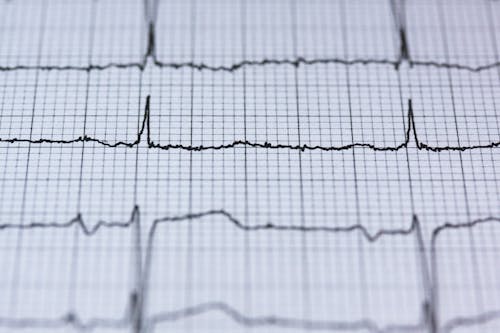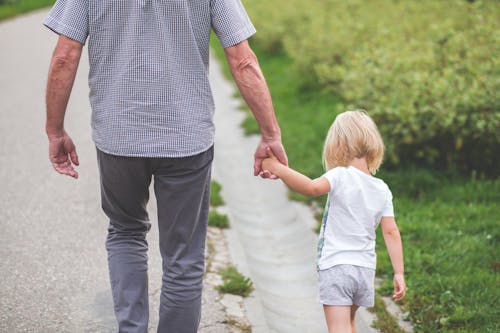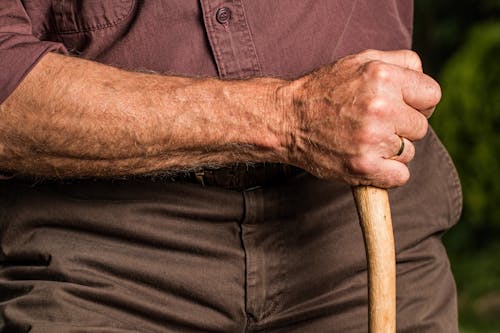Top 12 Questions and Health Concerns of Men in Their 30s

There are several health problems and risks that affect men — especially men in 30s. These include lower hormonal levels such as testosterone, prostate cancer — and a few other conditions that sometimes affect adult men more than women. With these issues in mind, we can narrow them down and list all the problems that worry men in 30s the most.
30 year old and above? What do you worry about?
Whenever we try to answer questions like “what are the major concerns that we should worry about?” or “What do you need to focus on when it comes to aging?” we should consider methods on how to approach them.
In the past, to get the consensus of the population, surveys were given in person, but nowadays, polls and surveys can be accomplished online. In one article online, an informal social media poll was created to reach approximately 2,000 men. Five health issues were revealed that men in 30s report worrying about as they get older. With the help of this article, along with other scientific journals, research publications, men’s health magazines, and other reliable health websites, we have compiled not just five, but twelve issues that adult men report to be their biggest concerns.
Top 12 Health Problems and Risks for Men in Their 30s
We were able to compile twelve health problems and risks that 30-year-old males face as they get older, including factors that may contribute to such conditions. Here are what men in 30s worry about:
1. How much sleep do men in 30s need

We all know that sleep needs differ as we age, and it is common knowledge that the required amount of sleep for adults is very much different than what is recommended for children. So how do we know the number of hours that men in 30s need specifically?
There are some general guidelines that many health professionals came up with for how much sleep is recommended by age. However, we will not go through all the life stages to discuss sleep requirements. Instead, we will focus on three age ranges.
For adults aged 30-39 years old:
People in their 30s are probably the busiest among other older age groups, that is why sleep or rest may seem to be harder to come by. Sometimes, men and women in their 30s tend to prioritize it less.
For adults aged 40-64 years old:
The suggested number of hours of sleep each night for adults aged 40 to 64 is also between seven and nine hours.
For adults aged 65 and older:
You may have heard some people claiming that we require less sleep as we get older. But health professionals recommend that people aged 65 and above should try to get seven to eight hours of sleep.
It may be difficult to attain because insomnia and other sleep disturbances are common among older adults. Instances of sleep apnea are also higher for adults over 65 years old.
The reason why these conditions happen as we age is not yet fully understood. But according to some research, it may be due to misperception of sleep, medical conditions, cognitive disorders, and light perception changes secondary to eye conditions like clouding of the lens.
What you can do:
However, you should get enough quality sleep or rest. Aim for at least seven to nine hours of sleep each night. Adequate rest is associated with healthier body weight, reduced sleep, lower risk for serious health problems, and improved mood.
In summary:
Remember that,
- Your sleeping pattern might start to get worse in your 30s
- Contrary to popular belief, your need for sleep does not decline with age
- You need to get enough sleep—at least seven to nine hours each night
- Adequate sleep is associated with healthier body weight
- Disrupted sleeping pattern is associated with increased risk for serious health problems
2. Are prostate cancer and other bladder related problems common in 30 year old men
Although prostate cancer is probably not a big concern for most men in their 30s, there are other prostate-related issues that men should be aware of.
To those who do not know much about what prostate is and what it does, here is a summary:
The prostate gland in humans is a part of the male reproductive system. It is a small gland that is about the size of a walnut. This gland helps men make the fluid that carries the sperm. And it is situated below the urinary bladder and in front of the rectum (where feces accumulate). The prostate also surrounds a portion of the urethra, a tube that facilitates urine flow out of the bladder and through the penis.
Since the prostate surrounds a part of the male urethra, the signs and symptoms of certain prostate-related conditions usually affect urination and male genitalia. These manifestations include pain when urinating, needing to urinate frequently, inability to hold urine, erection difficulties, a painful release of semen from the body, and blood in urine, to name a few.
Being aware of the signs and symptoms of prostate cancer will help early detection. It can also make a huge difference during treatment and management.
What you can do:
Get screened for prostate cancer to make sure that your prostate is healthy. Remember that early detection can result in a successful treatment regimen.
In summary:
Remember that,
- All men, especially those who are aging, are at risk for prostate problems
- Besides skin cancer, prostate cancer is among the top forms of cancer in men
- The prostate gland grows naturally as men age, usually without problems.
- Prostate cancer is often asymptomatic. It is only discovered after performing a lab test using a prostate-specific antigen.
3. How to take care of heart health if you are a 30 year old male
Heart issues emerge in many forms. Some forms can remain undetected for a long time; others do not, and yet can still lead to serious complications—even fatal ones. In fact, according to the American Heart Association, one out of three male adults has some form of diseases related to cardiovascular health. Furthermore, statistics show that among men, hypertension, or high blood pressure is common.
 Aging can cause significant changes in the muscles of the heart and size of blood vessels. For instance, as you get older, your heart muscles can’t beat as they used to during physical activities or in times of stress like when you were younger.
Aging can cause significant changes in the muscles of the heart and size of blood vessels. For instance, as you get older, your heart muscles can’t beat as they used to during physical activities or in times of stress like when you were younger.
Heart health can also become compromised by atherosclerosis or the build-up of cholesterol and other fatty deposits or plaque in the walls of the blood vessels. These plaques that narrow the size of the lumen of blood vessels will hinder the blood supply to the heart muscles. In some cases, if the plaque or build-up that blocked the arteries (blood vessels) ruptures, it may cause angina or chest pain, and even, heart attack.
What you can do:
The simplest solution to keep your heart beating, is, of course, to take care of your heart. Just like other organs and other parts of our body, the heart needs to be taken care of to stay healthy.
Exercise your heart. You can do this by walking, biking, or jogging, as long as you can tolerate it. Also, you must eat healthy foods and avoid unhealthy fats, which may increase the risk or cause heart problems in your 40s.
So, exercise and move your body, include organic (grass-fed) meat dark, plus leafy green vegetables in your diet. And, do not miss routine check-ups because it will help your doctor to evaluate all the risks associated with heart disease.
In summary:
Remember that,- Certain heart conditions can remain undetected for a long time, and yet can still lead to fatal complications
- Aging can cause changes in heart health, including blood vessels and heart muscles.
- Changes to the cardiovascular system that happens with age may increase the risk of acquiring heart problems.
- If plaque or fatty build-up in the arteries ruptures, it may travel and lodge to the walls the smallest blood vessels, which may result in chest pain, or even, heart attack.
- The simplest solution to avoid heart diseases is to take care of the heart by exercising, eating healthy food, and regularly attending routine check-ups.
4. Does aging affect infertility
Most men assume that age doesn’t affect much when it comes to having kids, but it is not true: studies show that male gametes also age like female egg cells.
What does this mean?
Like most cells, sperm maturation increases the chances of having high concentrations of damaged sperm. Aside from that, the body becomes less able to distinguish which ones are damaged.
Damaged sperm cells have effects on the DNA (the hereditary material in humans), potentially altering the genetic code of the baby.
What you can do:
Because the quality of male gamete may be affected as early as the mid-30s due to aging, be sure to plan and talk with your partner if you’d like to have children later in life. You may also consider sperm banking and discuss other options with your primary care provider.

In summary:
Remember that,
- Research show evidence for increasing sperm damage and defect with advancing age
- Defective sperm cells have the potential to alter genetic code the baby
- Aging men should seek a physician’s recommendation with regards to family planning
- If a man plans on delaying fatherhood, sperm banking before reaching the age 30s—or 40s may be taken into consideration
5. How do you deal with bone and muscle mass loss if you are a 30 year old male
Bone and muscle mass loss is something that you won’t notice immediately, but it’s real. When you reach 30, bone loss sets in, and at the age of 35, bone breakdown becomes faster than the body can compensate. During this age, you will also notice decreasing muscle tone, consequently affecting balance and overall strength.

Age-related bone and muscle loss is a natural part of aging. At thirty-one (31) years old, humans begin to lose as much as 3 - 5 % of muscle mass per decade. In most men, about 30% of muscle mass is lost throughout their lifetime.
What you can do:
To keep your bones and muscle healthy, preserve your muscle mass. You may not be able to halt its decline, but you can rebuild and maintain them. You can do this by consuming foods that are nutritious and full of vitamins. These include green leafy vegetables that are rich in calcium and fatty fish (salmon) or egg yolks, which contain vitamin D. Other sources of calcium include fruits such as figs and oranges or greens like spinach, collards, and kale. If you do not have easy access to these kinds of foods, find a high-quality supplement to take on a regular basis.
And besides getting enough vitamin D and calcium, it is vital to exercise. Exercising will help you avoid osteoporosis in later life.
Also, if you are smoking, it will be beneficial to quit because smoking can speed up the process of bone density loss.
In summary:
Remember that,- When you reach 30, bone and muscle mass loss may set in as a natural part of aging
- You can preserve your muscle mass and bone strength by eating foods rich in vitamins and minerals that can improve bone and muscle health
- Dietary supplements can help in maintaining the right amounts of nutrients in the body
6. Is there an increased risk for testicular cancer once you hit 30s
According to the National Institute of Health, the most common type of cancer in 30 years old men and above is testicular cancer. In its early stages, testicular cancer may be asymptomatic and not have noticeable symptoms. But in late stages, signs and symptoms include pain in the scrotum or testicles, aching in the groin, dull ache in the abdomen or groin, lumps in one or both testicles, tenderness or enlargement of the breasts, and/or back pains.
What you can do:
Be aware of the signs and symptoms of testicular cancer, as well as changes in your overall health as you age. Even if these symptoms aren’t present, consult with your primary physician and get screened or yearly assessment.
In summary:
Remember that,
- There is an increased risk for testicular cancer when you reach 30s
- It is imperative to consult with your primary physician and get screened for early diagnosis and better treatment strategies.
7. How to adjust to metabolism slow down if you are men in 30s
If you are gaining extra pounds in your 30s, that’s because your metabolism tends to change due to aging. This means that your body doesn’t require as much energy from food to fuel yourself, even if your appetite is as active as a 20-year-old’s appetite. And because your body can’t metabolize energy efficiently, you will keep on adding weight. For male adults, this change happens more gradually.
What you can do:
You may have to exercise and try a bit harder to keep your body from gaining too much weight. If you are just sitting on the couch all day long, begin a regular exercise regimen. If you are exercising and yet still adding extra pounds in your weight, consult with your fitness coach, and possibly bump up your workout sessions.

Get plenty of rest or sleep, and add plenty of metabolism-boosting foods in your diet. These include whole grains, citrus fruits, broccoli, hot peppers, soups, spices, and green tea.
In summary:
Remember that,
- Metabolism tends to change as people grow old
- Metabolism changes may result in weight gain
- Exercise, rest, and a well-balanced diet can help in maintaining a healthy body including the digestive system
8. Is influenza or pneumonia common to men in 30s
Infections such as Influenza and Pneumonia are the two leading health risks for men. In a report by the American Lung Association, men are about 25% more likely to die from Influenza and Pneumonia than women. Furthermore, men who are immunocompromised (those with an impaired immune system) due to congestive heart failure, COPD, diabetes, cancer, sickle cell anemia, or AIDS are more susceptible to these illnesses.
What you can do:
To avoid contracting influenza or pneumonia, vaccination is recommended by the American Lung Association.
In summary:
Remember that,
- influenza and pneumonia is common to men in 30s
- Prevention strategies should be followed to avoid contracting influenza and other lung diseases
9. Is aging one of the causes of higher rates of alcohol-related deaths
According to the CDC, short for the Centers for Disease Control and Prevention, men face higher risks for alcohol-related hospitalizations and deaths than women do. Men also binge drink alcoholic beverages twice as much as women. This behavior towards alcohol consumption increases the risk of liver, esophagus, colon, throat, and mouth cancer.
What you can do:
Drink responsibly and get appropriate help if you suspect that you are prone to alcohol abuse.
In summary:
Remember that,
- Men face higher risks for alcohol-related concerns than women
- Drink responsibly or avoid alcohol if necessary
10. How do you deal with Arthritis and joint inflammation issues when you get older
Arthritis and joint issues are not only in men but are most common among women too. This set of conditions is, in fact, a leading cause of disability in America and other countries due to wear and tear as people get older.

Although arthritis signs and symptoms may come and go, they can affect people’s activities of daily living. Some form of arthritis can be mild, others may be moderate, but it can be severe at some point. Aside from chronic pain, immobility is the most common concern of people with arthritis because inflammation and joint pains often make it difficult to walk or climb stairs.
What you can do:
Some age-related joint deterioration may be unavoidable, but like how bone health can be maintained, there’s a lot you can do to improve joint health. An effective way to do this is through diet and lifestyle changes.
It may sound overwhelming, but you may want to consider exercising or easing off to moderate and regular exercise regimen as you approach age 30. This is good for the joints because it increases strength and flexibility, as well as reduces pain or tenderness in the joints. Once you decide to do some form of exercise, discuss this with your doctor so you can determine what level of activity is appropriate for your condition.
In summary:
Remember that,
- Arthritis and joint issues are the two leading causes of disability around the world due to wear and tear as people get older.
- Age-related joint problems may be unavoidable, but there are ways to maintain bone and joint health.
- Practices such as eating a healthy diet and exercising regularly and may help prevent arthritis and other joint issues.
11. Is COPD or other respiratory diseases common to men in 30s?
CDC says that in the United States, the third leading cause of death is COPD. Unlike other types of lung disease, COPD is most common in older adults. And according to the American Lung Association, more and more men are diagnosed yearly with lung cancer than in the past.
While occupational hazards exposure to minerals (like asbestos) vapors, chemicals fumes, and dust increase the risk for COPD, smoking remains a major reason for lung cancer.
For all those who do not know, COPD is short for Chronic Obstructive Pulmonary Disease. It is a term that describes not just one type of condition, but all kinds of progressive lung diseases.
If you are smoking, it may begin with an innocent “smoker’s cough.” But, over time, these frequent coughing may lead to non-reversible asthma, emphysema, and chronic bronchitis. All of these lung conditions may interfere with breathing because they cause them to narrow and collapse.

What you can do:
If you are a long-term smoker, it may be time to talk to your doctor and discuss if a screening or other diagnostic tests are necessary. But, it is essential to know that the best way to avoid having COPD is smoking cessation. It may not be easy, but there are various resources to help you quit, such as medication or counseling. Also, even if you do not smoke and someone from your work home does, try to stay away from inhaling the smoke as secondhand smoking may also harm your health.
In summary:
Remember that,
- COPD and other lung diseases are most common in older adults.
- Smoking is one of the factors that may trigger or cause lung diseases.
- Cessation of smoking (both firsthand and secondhand) may help prevent lung cancer and other related lung diseases.
12. How to avoid skin cancer?
According to the Skin Cancer Foundation, the most common cancer worldwide is skin cancer. In 2013, records also indicate that two-thirds of melanoma deaths were men, which is more than twice the number of affected women.
What you can do:
You cannot hide from the sun, but you can protect yourself against skin cancer by wearing appropriate clothing when you are outdoors. You can wear sunglasses, hats with wide brims, sunscreen and don long sleeves, and pants. Also, try to avoid exposure to UV light sources, such as sunlamps or tanning beds.
In summary:
Remember that,
- Skin cancer is also common in men
- Prevention strategies against skin cancer include wearing appropriate clothing outdoors, using sunglasses, and avoiding exposure to UV light sources
The Key to Good Health if You are in Your 30s
These top 12 questions and health problems for men in 30s may not seem like a big concern for you right now, especially if you’re healthy—but, being aware of these issues and doing early prevention strategies can help you limit these issues.

